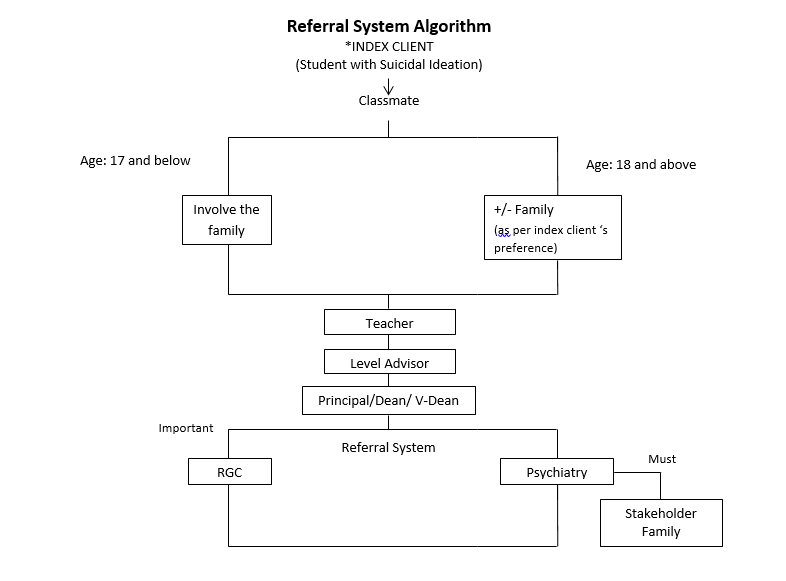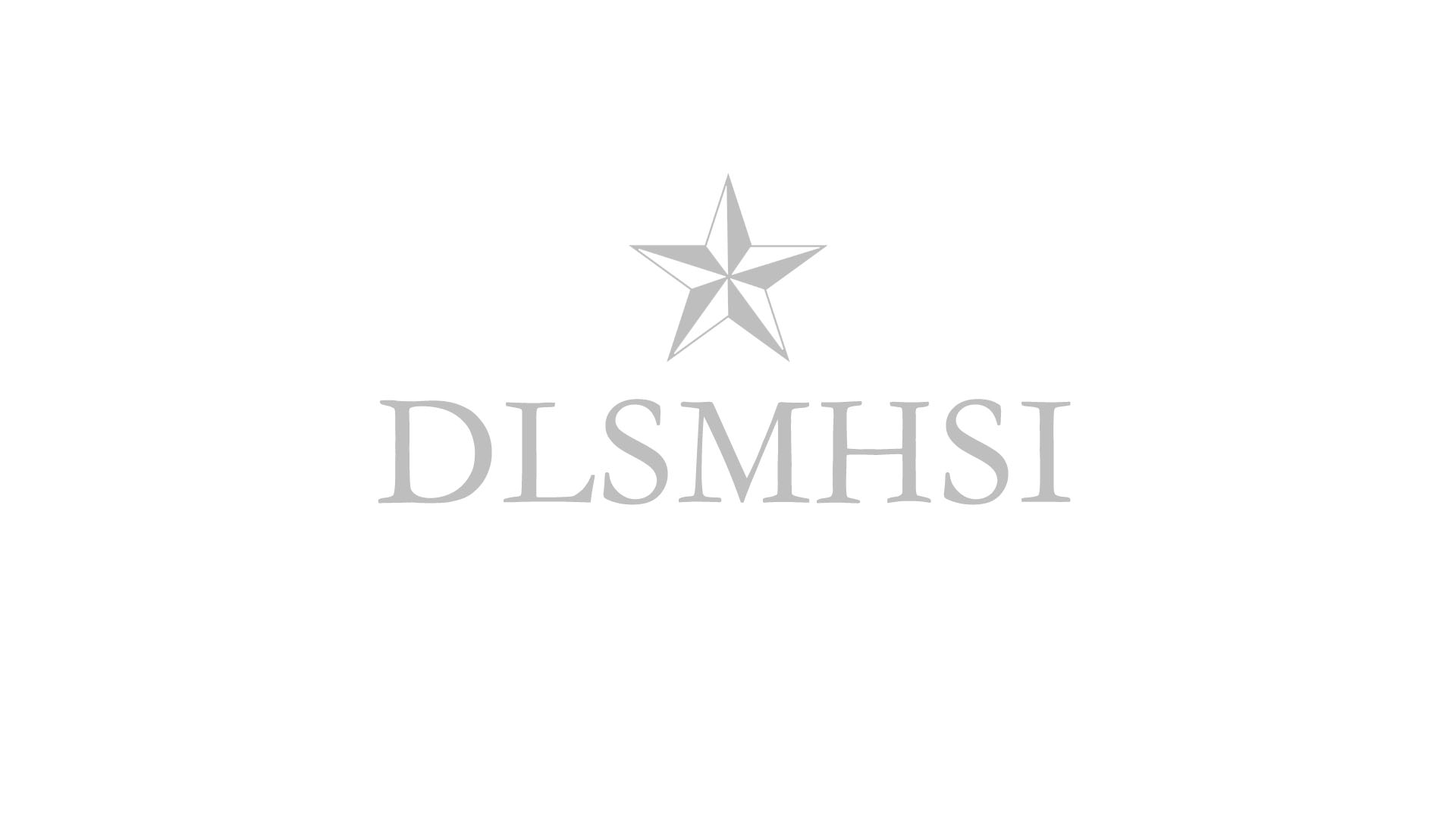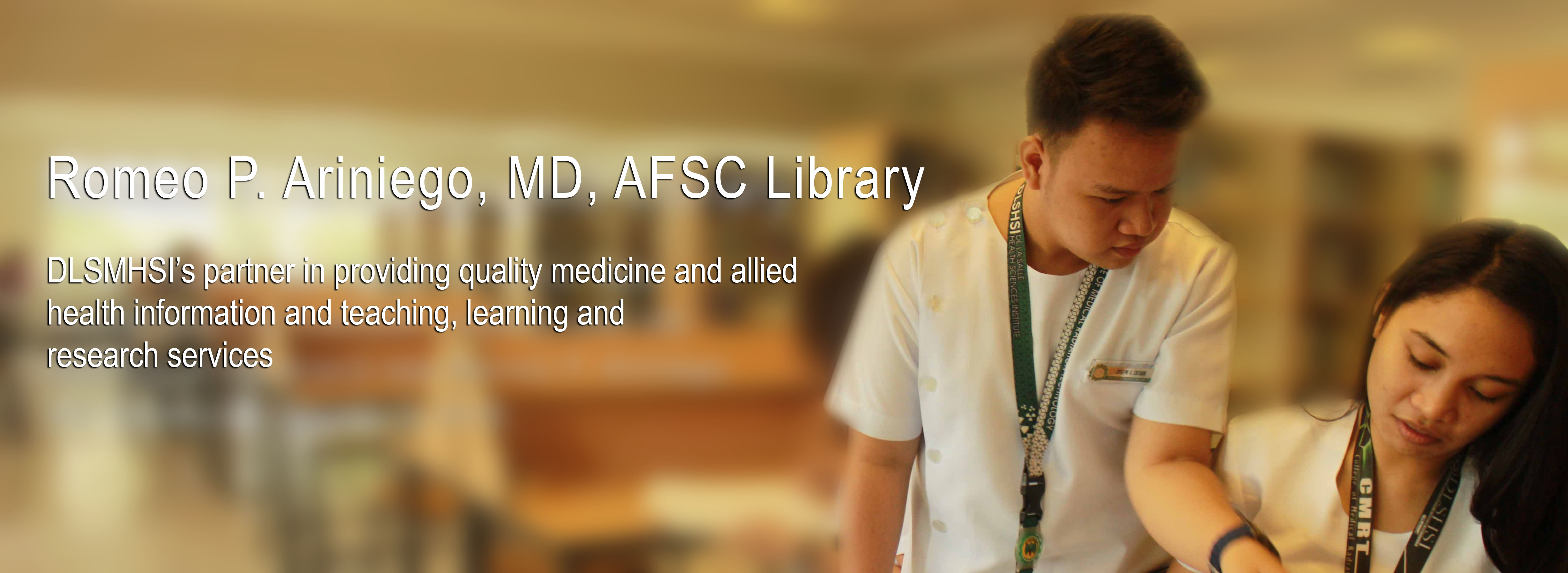MAJOR
1. COUNSELING
- It is the heart of the Guidance Program, It is geared towards the establishment of rapport and a feeling of mutual trust and understanding with the students in order to fully assist them in the process of resolving their issues and concerns.
OBJECTIVES
- To create meaningful awareness and understanding of the self and environment, improving planning and decision making, and formulating new ways of behaving, feeling and thinking for problem resolution and/ or development growth.
SERVICES
- Voluntary/ Walk-in Counseling (A students seeking the help of the counselor voluntarily)
- Counseling session focuses on helping the student overcome their pressing needs, difficulties and problems, and thereby make appropriate actions and adjustments;
- Individual Academic Counseling
- A means of correlating the individual student psychological test results with his /her General Weighted Average (GWA) towards understanding oneself in relation to his/her academics;
- Follow-up Counseling based on the Individual Student’s Annual Interview who sought Voluntary Counseling
- A counseling process which determines or ascertains the condition and progress of the student’s problem;
- Career Counseling– To assist the students in dealing with issues concerning difficulties and adjustment problems regarding chosen field of career, likewise to help them come up with the right decision about future specialization and farther educations, considering important factors like, personality, values, skills and competencies; and
- Family Counseling(as the need arises) – that helps family members improve communication, strengthens the support system and resolve conflicts.
2. INTERVIEW Individual Interviews (Given to the students annually)
OBJECTIVES
- To establish rapport and to assess pressing situation to give preventive measures or interventions/counseling if necessary.
Types / kinds of Interview:
- Initial – First Year
- Routine – Second Year
- Follow up – Third year
- Exit – Fourth year / Fifth Year
3. REFERRAL SERVICE (as the need arises)
- To establish and strengthen helping relationship with parents/ teachers in order to promote holistic welfare and achieve self-actualization. As the need arises, family counseling, home visits, and telephone counseling are given.
4. PSYCHOLOGICAL TESTING
- This provides important information that brings about knowing and accepting one’s strength and limitation. It is geared towards prediction, counseling, assessment, evaluation purpose, preparing the students for their future career. Psychological Testing Administration, scoring and individual student narrative test interpretation is under the service of a credible testing agency.
OBJECTIVES
- To help students in discovering and accepting one’s strengths, limitations and potentials to facilitate better self- understanding and adjustment to various life situations;
- To help the counselor gain better understanding of the individual;
- To help the students set his educational goals;
- To identify students concerns, difficulties, problems likewise psycho-emotional needs;
- To serve as spring-board for counseling;
- To help counselees arrive at decisions in planning their educational and vocational futures; and
- To provide data for researches and studies.
5. PARENT CONFERENCES – Parent Conference / Consultation (as the need arises)
OBJECTIVES
- To establish helping relationship with parents in order to promote holistic welfare and development of their children.
6. TEACHER CONFERENCERS – Teacher Conference/ Consultation (as the need arises)
OBJECTIVES
- To strengthen the helping relationship with teachers by:
- Involving them in scheduling and implementation of the guidance activities; and
- Updating the faculty concerned on the progress of the student’s problem taking in to consideration the ethics/principles of confidentiality.
7. INFORMATION It provides important information to students in promoting attitudes and habits, which will assist them in making intelligent choices and decisions, and in coping with life’s complexities.
OBJECTIVES
- To provide students with the latest career and occupational information;
- To ascertain students’ career choice and help in choosing field of specialization;
- To help students build better perspective in life;
- To inform students with the latest trend and technology in their chosen course;
- To provide data for researches and studies;
- To make the faculty aware of the following reports: Reports on the College/Year Level Profile of Students’ Common Needs and Problems and Psychological Test Results are disseminated and discussed to the student, faculty and administrations; and
- To make faculty aware of the different Guidance Services.
SERVICES
- Guidance Orientation for the students and faculty;
- Provides Career and Occupational information posted on the College Guidance Bulletin board; and
- Summary Reports on the College/ Year level profile of Students’ Needs Assessment Checklist and Psychological test results are disseminated and discussed to the students, faculty, and administrators.
8. RESEARCH AND EVALUATION
- Research on Career, “Assessing the Students’ Preparedness For Future Profession”, considering the paradigm shift to Asian trend in career.
- Reports on the Students’ Psychological Test Results, Counselors’ evaluation by the student and Common Needs and Problems are consolidated, tallied, profiled and summarized in order to gather pertinent data that would aid the GCSU to deliver quality services and substantial information to concerned members of the institution.
SERVICES
- Reports on the Students’ Psychological Test Results, Need Assessment Checklists and Survey Questionnaires are summarized and profiled; and
- Guidance Service Evaluation.
9. INDIVIDUAL INVENTORY –
- Accumulation of records of all pertinent information about the individual student is maintained and updated yearly to assist the student especially in areas where student has certain needs and concerns; and
- The Students Personal Cumulative Record (SPCR), Needs Assessment Checklist (NAC) are being accomplished by students which will be used as spring-board for counseling.
OBJECTIVES
- To provide a complete information of the students, that will help the counselor to have better understanding of the individual’s situation;
- To gather reliable data about the students in understanding the students for healthy growth and development; and
- To provide data for researches and studies.
SERVICES
- Completing, Filing and Updating:
- Student’s Personal and Cumulative Record (SPCR)
- Needs Assessment Checklist (NAC)
10. GUIDANCE ENRICHMENT PROGRAM (given yearly per level depending on the needs of students)
- It is a developmental approach given through seminar-workshops to help the students adjust and excel in their academics. Likewise, equip them with knowledge and understanding about chosen course/future career, values, psychosocial skills and emotional quotient/skills. These things are indispensable in making our graduates globally competitive, leading them to the best employment options, decisions and ultimately to a fulfilling and rewarding career/profession

MENTAL HEALTH AWARENESS SEMINAR
- To have adequate awareness and understanding about mental health issues;
- To identify signs and symptoms likewise common causes of psycho-emotional concerns;
- To encourage the students to speak up and ask for help if they are experiencing psycho-emotional problem;
- To recommend effective “self-help”/ strategies and approaches that could be used by the individual in crisis to be more functional;
- To help the student understand the role of the ”support system” in dealing with individuals who are in crisis; and
- To reduce stigma associated with mental health problems.
COPING IN COLLEGE LIFE
Study Habits
- To inspire the students in developing good study habits that would help improve their academic performance; and
- To be able to get first hand tips from (alumni) board top-notchers on study habits and techniques in which made them excel in their academics and board examinations.
Time Management
- To provide the students with tips on how to manage and maximize their time through proper prioritization.
Stress Management
- To provide the students with tips or skills on how to combat stress brought about by internship; and
- To help the students gain better stress management skills for them to perform to their fullest potentials.
WORKSHOP ON STRENGTHENING THE EMOTIONAL QUOTIENT IN THE HEALTH ALLIED PROFESSION
- To learn and understand the importance of EQ in success in one’s life and in one’s career/profession;
- To check and evaluate one’s emotional quotient which comprises of the following factors;self-awareness,self-management, social-awareness, relationship management and empathy; and
- To improve emotional intelligence, decision-making abilities and manage one’s emotions by developing key skills for controlling and managing overwhelming stress.
CAREER AWARENESS
- To give the students a better understanding, correct expectations and proper mindset of what their course is all about and the responsibility it requires as a career/profession; and
- To help the students understand the challenges it entails during the process of earning the degree and beyond.
CAREER TALK/CAREER OPTIONS
- To make them aware of the different career options and field of specialization;
- To have awareness on the competencies, personality type, own values and attitudes to be considered in choosing future career specialization;
- To inspire them with the experiences of successful speakers in the profession; and
- To keep abreast with local and international trends in the medical field/chosen career/choice of specialization.
SEMINAR ON PERSONAL and WORK VALUES (preparing the students for the world-of-work)
- To assists the students to identify and internalize the desirable work values, and make it a step toward career success; and
- To cultivate enthusiasm in doing their jobs to the best of their abilities and have the heart to go beyond the call-of-duty.
SEMINAR ON PUBLIC SPEAKING (Enhancing Confidence in Public Speaking)
- To help the students enhance their skills and confidence in speaking in front of the group of people
CURRICULUM VITAE MAKING AND WINNING INTERVIEW
- To assist the graduating students in making comprehensive and impressive curriculum vitae likewise prepare them for a winning job interview.
11. PEER FACILITATORS GROUP
- Peer Facilitators Group, an “evidenced based practice” in Guidance and Counseling. This is a “Student Wellness Advocates Group” under the supervision of SWGCD. Passionate-interested members will undergo trainings/seminars/sessions to facilitate their roles effectively and to know their limitations.
OBJECTIVES
- The Peer Facilitators Group aims to reach out for more students to get involved with the mental health awareness and prevention activities. It also aims to create an avenue for the students to open up about their thoughts, feelings and concerns in a less threatening way.
MINOR (the following but not limited to:)
- As the need arises, family counseling, home visits, and telephone counseling are given as part of the referral service;
- Institutional Enrichment Seminar, focusing on Psychosocial and Psycho-Emotional Development is given during Lasallian Day’s Celebration;
- Counseling with DLSMHSI employees and relatives are given when asked the help of the counselors; and
- Counselors outreach programs to help the victims of calamities.



